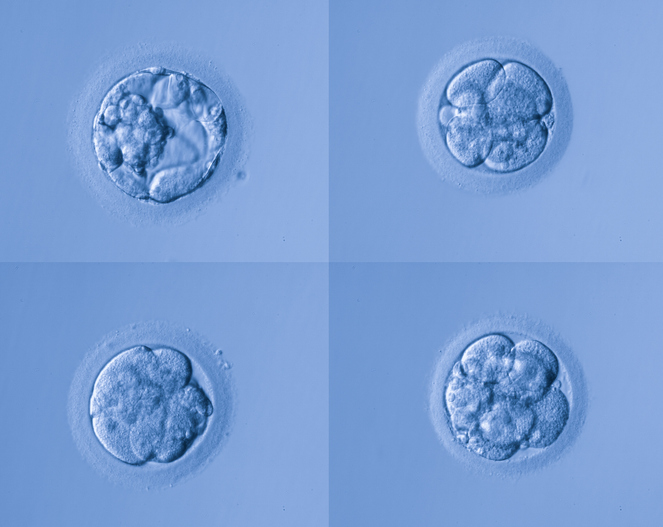

Warning: This article contains spoilers for Season 2 of The Sex Lives of College Girls.
At Cofertility, we are so thrilled that conversations about reproductive health are making their way into the limelight. From Jennifer Aniston opening up about how she wishes she froze her eggs at a younger age, to the latest season of The Sex Lives of College Girls, where Kimberly decides to donate (or as she refers to it, “sell”) her eggs in order to pay her college tuition, we love to see women becoming more educated on their fertility.
Our team has been watching this season obsessively (and spending way too much time talking about it during our daily meetings), and are overall so appreciative of how Kimberly’s donation journey was portrayed. Creators Mindy Kaling and Justin Noble have taken what has been traditionally portrayed as an overly-clinical, overwhelming process and humanized it — showing the reality of what egg freezing or donation cycles can look like for the modern woman. Here are just some of our team’s favorite aspects of the portrayal of Kimberly’s journey:
You don’t have to put your life on pause.

The process of donating (or freezing) your eggs involves a medical procedure and should be taken seriously, but as Kimberly shows us (with the help of her roommate, Leighton) in Season 2 Ep. 5, that doesn’t mean you have to put your entire life on hold.
While there are some things you’ll have to avoid, such as heavy exercise, alcohol, and sex, you won’t be pinned to your couch for three weeks while you prepare for your retrieval. You’ll need to stay local to your clinic for your monitoring appointments, but other than that, keep doing you.
Overall, the medical process of donating your eggs is the same process as freezing your eggs. If you’re curious to learn more about what that looks like, (and even how you can freeze your eggs for free when you donate half) we’ve got you covered.
Egg banks often target women in tough financial situations

Kimberly first learns about “selling” her eggs after getting denied a student loan that she desperately needed. If the thought of this gives you the ick—you’re not alone.
It’s true that the egg donation industry has historically targeted individuals in poor financial situations, and we wholeheartedly agree with the American Society of Reproductive Medicine (ASRM)’s stance that financial compensation for egg donation opens the door for exploitation.
Additionally, $80K for a single cycle is a pretty unrealistic expectation, given that the average compensation is more like $3,500 - $5,000 per cycle.
However, women who donate their eggs are truly giving intended parents the invaluable opportunity to fulfill their family-building dreams, and that deserves to be recognized. That’s why we created our Split program, which eliminates the icky-ness of financial compensation by instead giving our members the opportunity to freeze their eggs for free for their own reproductive future when they give half of the retrieved eggs to another family that can’t otherwise conceive.

Your squad is everything

Though going through an egg retrieval is considered a low-risk procedure, it’s not something that you should feel like you’re doing alone. On the day of your retrieval appointment, you’ll need to bring a companion with you since you’ll be put under anesthesia, but as we saw in The Sex Lives of College Girls Season 2 Episode 5, having your crew on deck for emotional support makes all the difference in making sure you feel empowered through this epic journey.
It’s more than just “selling your eggs”

Donating your eggs is a huge decision—one that goes far beyond a bank deposit after the fact. When you donate your eggs, you’re not just donating your eggs, you’re donating genetic material that will someday be used to bring a new life into this world, so there’s a lot to be considered.
To quote straight from Kimberly’s pro-con list, the possibility that you’ll “run into future kids at a shopping mall” may sound crazy, but it hints at the reality that we live in a world where anyone can walk into their local pharmacy and purchase a DNA test off the shelf for less than $100, and there is really no such thing as a truly anonymous egg donation experience.
At Cofertility, we take a firm stance in our belief that anonymous egg donation is wrong. We have invested in consulting with the donor-conceived community and truly believe that disclosed relationships are in the best interest of all parties involved, especially the donor-conceived children. So if you’re considering donating your eggs, make sure to keep in mind that the child or children conceived from those eggs may want to reach out to you in the future.
Additionally, Kimberly’s pro of “a cute gay couple uses my eggs” is one that is definitely within the realm of possibility, and one that we wholeheartedly support. The way we build families is more dynamic than ever, and at Cofertility, we work with countless LGBTQ+ intended parents to help make their family-building dreams a reality. If you’ve ever considered donating your eggs to a gay couple who needs them, this is a great way to do that.
Summary
At Cofertility, we’re on a mission to make the process of donating and freezing your eggs more accessible, human-centric, and supported. If you’re thinking about this as an option for yourself, we want you to know that we’re here for you. To see if you qualify for our Split program, where you can donate your eggs while freezing half of the retrieved eggs for your own future use, click here to take our free, two-minute quiz.










